Eco-Friendly Accommodation Options and How to Find Them
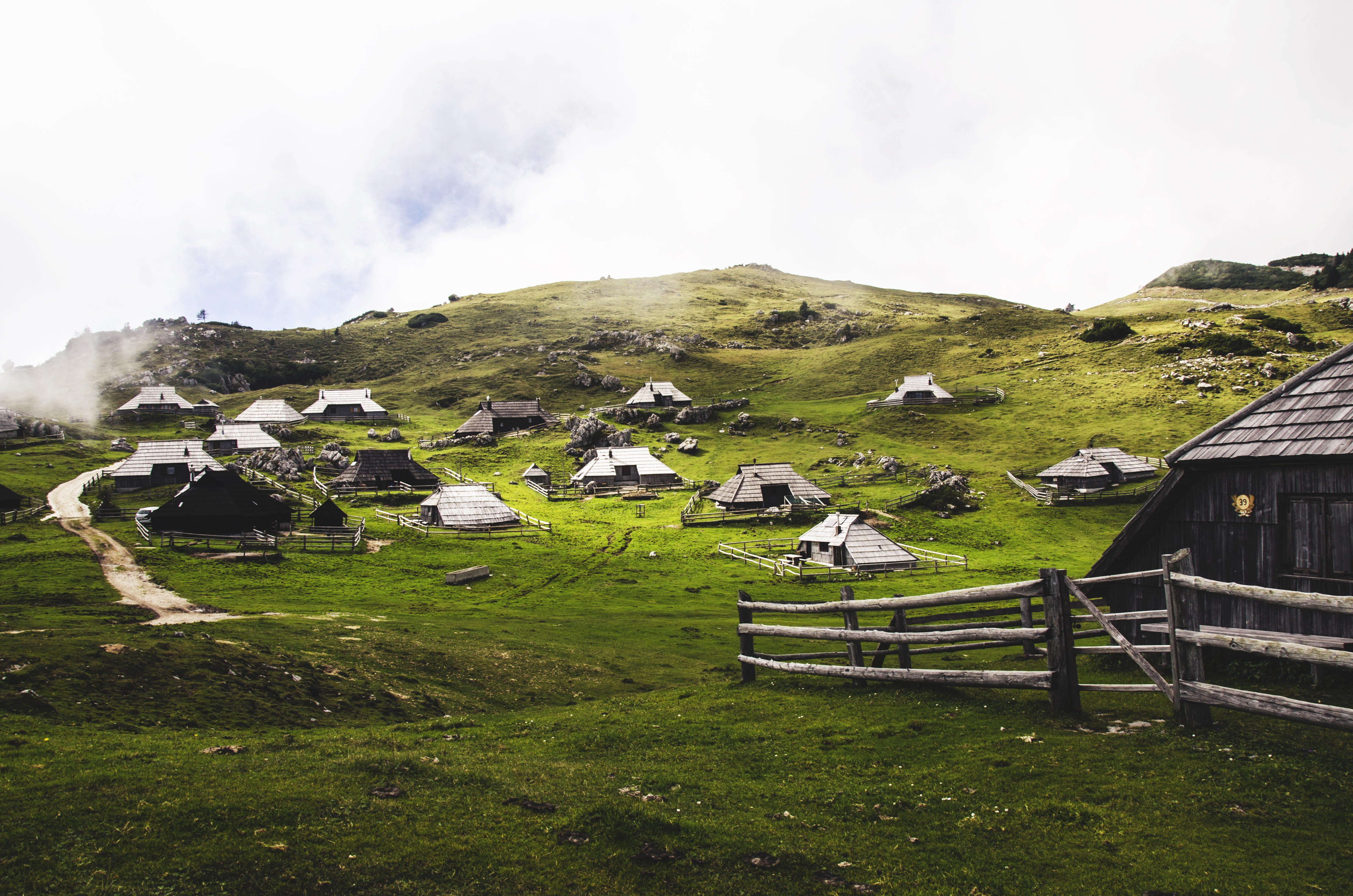
If like me you are feverish with wanderlust but also keen to be as eco-friendly as possible while travelling, then you might want to look into making eco-friendly accommodation choices. You don’t need to spend a fortune to be an eco-friendly traveller, but making eco-conscious choices often takes a reasonable amount of research.
Unfortunately, it can be all too easy to end up staying in a hotel or resort that has a negative impact on the environment without even realising it. Collectively, hotels are guilty of excessive energy consumption, unnecessary overuse of water and poor waste management. From bigger issues like building in areas where construction ruins the environment down to the little things like pumping out air conditioning and washing bed linen daily, hotels can leave a huge carbon footprint.
Instead of choosing a large resort or a chain hotel, instead look for alternative, eco-friendly accommodation such as camping, home stays, local guesthouses or at least an eco-hotel that does its bit for the environment and the local people.
What Makes Accommodation Eco-Friendly?
If you’re on the search for eco-friendly accommodation, then you need to know what kind of things to look out for. Of course, no accommodation is perfect but if they can fulfil at least some of the criteria then they’re on the right track. According to the EU Ecolabel for accommodation, the accommodation should be trying to lessen it’s impact on the environment by:
- Limiting energy consumption
- Limiting water consumption
- Reducing waste production
- Using renewable energy
- Promoting environmental education
Sometimes finding out all of this information about a hotel can be a challenge, but more often than not the hotel’s website will be proud to show off it’s commitment to the environment and the local community. As a general rule of thumb, smaller or locally run accommodation will have a lower impact than big hotels or resorts irrelevant of any claims about green practises.
One point to be aware of is the issue with greenwashing – when companies or hotels describe something as more responsible or ‘eco-friendly’ than it actually is. It can be hard to differentiate between genuinely committed and sustainable accommodation options and ones that are dressing up their business to make money off the back off the green movement. There aren’t any laws to stop businesses using ‘green’ or ‘eco’ labels, so you’ve just got to read between the lines.
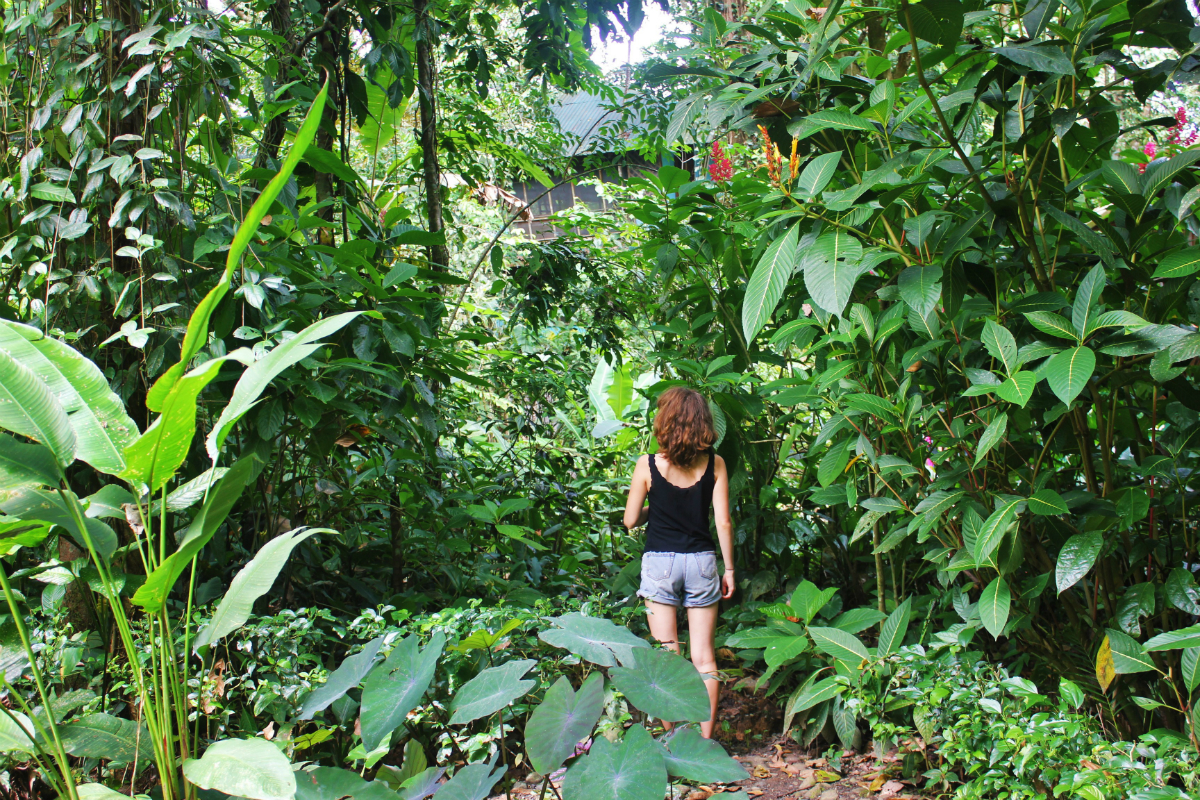
Eco-Hotels, Eco-Lodges and Eco-Retreats
There are loads of cool eco-hotels around the world boasting everything from self-contained pods that reduce carbon emissions to off-the-grid nature retreats that grow all their own veg. While some are inevitably more sustainable than others, we’ve found that most of the time the eco-hotels, lodges and retreats are genuinely trying to lower their impact on the environment.
By far the most admirable example of an eco-lodge which we’ve come across is La Kukula in Costa Rica which is a beautifully designed eco-lodge powered by renewable energy and uses clever design and passive cooling to avoid the need for air conditioning in the humid jungle. Isla Violin and Tipi Jungla, also in Costa Rica, which are owned by families living off-the-grid sustainable lifestyles who rely on their own solar energy and grow their own food as well.
- Green and black dart frog living at La Kukula Eco-Lodge in Costa Rica
- Cabins at La Kukula Eco-Lodge in Costa Rica
Staying Local and Eco-Friendly Accommodation in Cities
Most travellers spend their time in the capital and other big cities and don’t want to be without an internet connection for long periods of time, but there are still responsible accommodation options. In some countries, finding locally run accommodation can be really easy. For example, in Nicaragua the cities on the main tourist routes, such as Leon and Granada, are relatively small places and there are lots of local people running guesthouses at reasonable prices.
We’ve found that in larger cities, where finding local and eco-friendly accommodation is more of a challenge, it can be worth checking out Airbnb to see if there are any places to rent in a non-touristy neighbourhood or in a local’s house. When we were in Bangkok recently, we stayed in a cool little city-based homestay with a really accommodating couple and it was a way better experience than any of the larger hotels could provide.
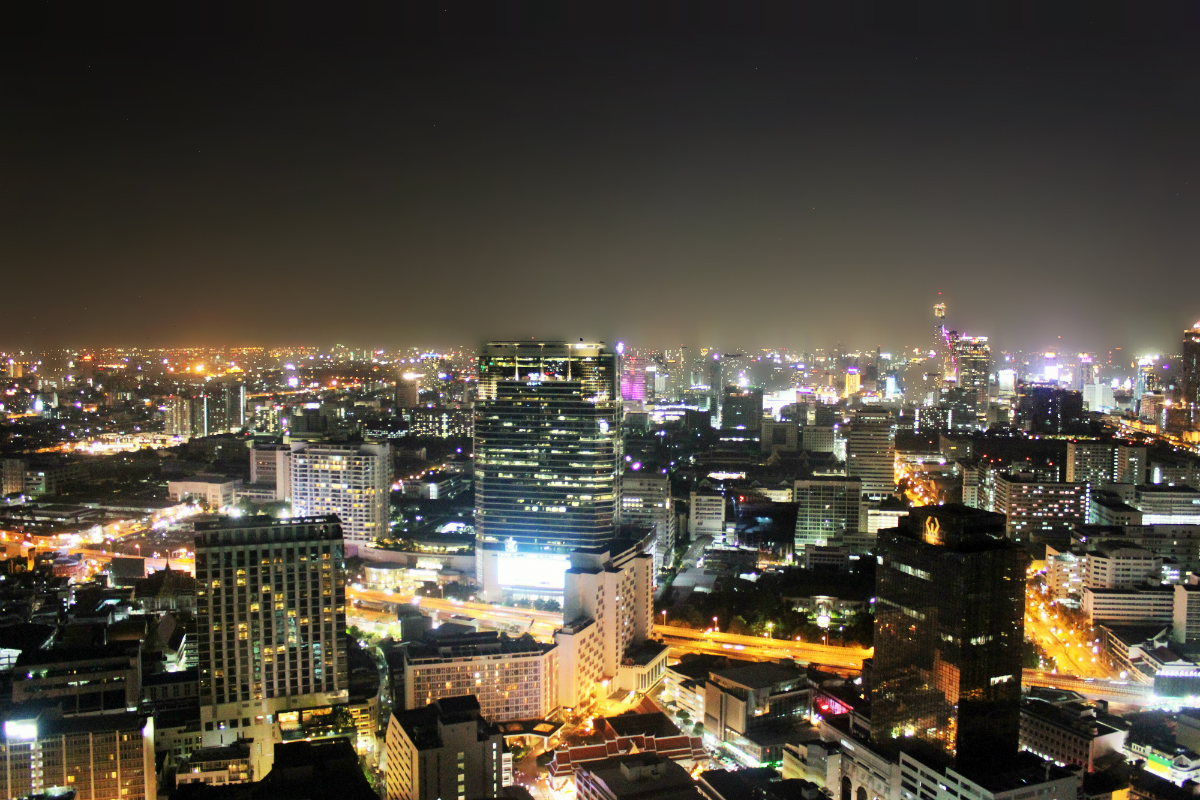
Home Stays
Another eco-friendly accommodation option is to forget about hotels and guesthouses altogether and instead go in search of alternative accommodation with local families and communities. Many home stays involve volunteering or language learning components that also support the local communities by contributing to the local economy. By staying with a local family, you’ll also use far fewer resources than you would do in any hotel.
We use Homestay.com to search for home stays. We’ve also hosted through the website when we’ve been at our home base in Brighton. The platform is more like how Airbnb used to be when it first started up. All of the stays are with locals in their own homes meaning you get a more local experience.
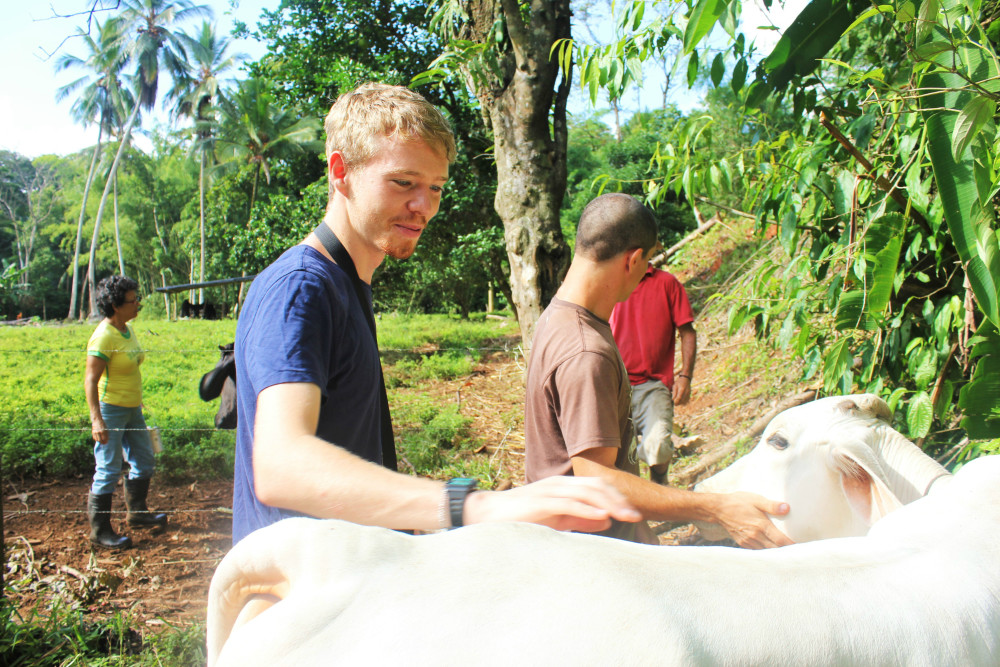
House Sitting
House sitting is our favourite eco-friendly accommodation option. By travelling slowly and staying in one place for a longer period of time, you lessen your carbon footprint. By opting out of staying in hotels that were built for tourists you’re also decreasing the demand for them.
If it’s your first time house sitting, you can get 25% off a TrustedHousesitters membership here. TrustedHousesitters is a popular platform for those who are new to house sitting and lets you build up a profile of reviews. However, it’s also possible to find house sits on your own like we did. We found most of our house sits through connecting with expats over Facebook and Craigslist.
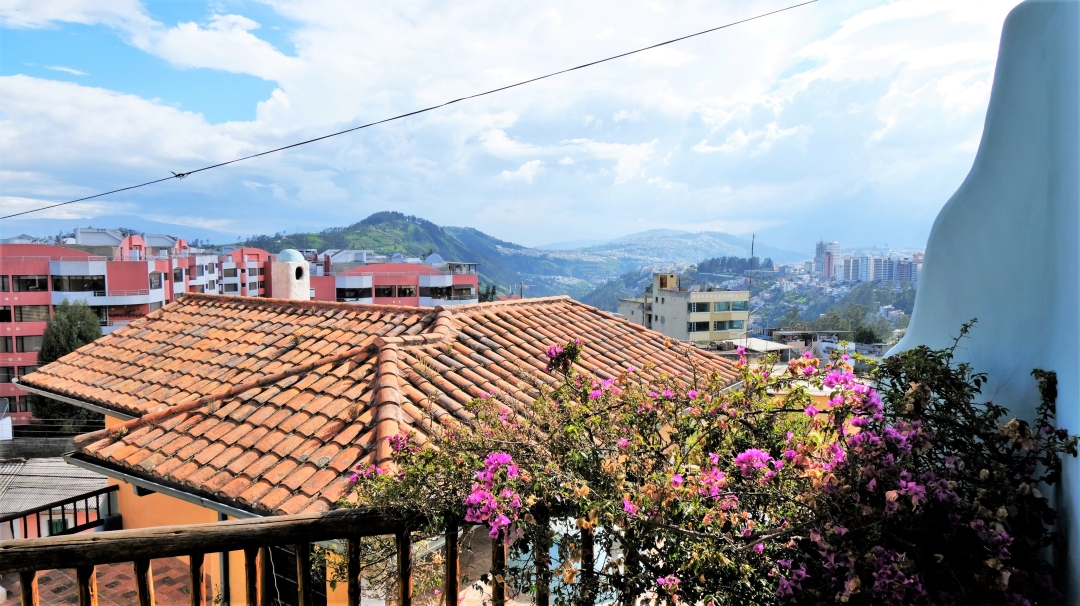
Other Eco-Friendly Accommodation Alternatives
My list is by no means a definitive one when it comes to looking for eco-friendly accommodation. There are also plenty of opportunities for more outdoor style accommodation such as camping, staying in tipis and yurts, and local huts.
In the past, Luke and I have really loved using Couchsurfing as well as a way to find shared accommodation and meet with locals, and we’ve met hosts through Facebook and on Craigslist as well. Although we’ve only had positive experiences of meeting people via online networks, we always recommend exercising caution and chatting to people on Skype or meeting for coffee first of all.
Do you have any other tips for finding eco-friendly accommodation while travelling?
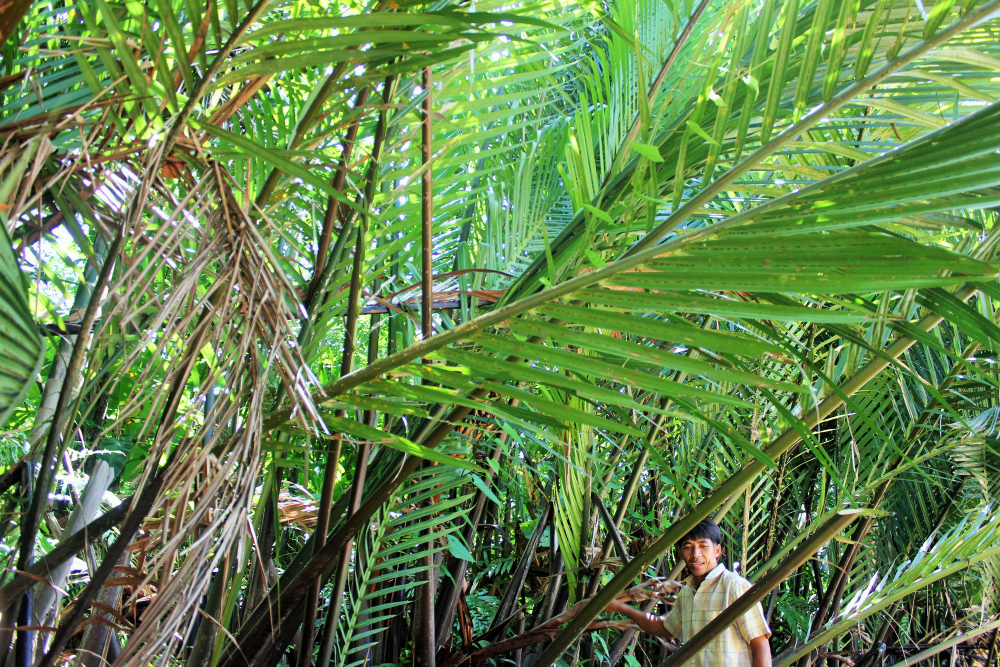







Oreeko || Eco Directory & Blog
I love that it’s easier to find eco accommodations and that hotels are looking for ways to improve their overall efficiency. Hopefully, more facilities will get on board and adopt eco & ethical practices. Thank you for the great article.
Charlie on Travel
Thanks guys! I love your blog as well, it’s an excellent resource for the eco-conscious :)
Sharon
Thank you for highlighting the fact that hotels are not the only places to stay, especially if you want to fully experience the country that you are travelling around and meet new like minded people.
We need more eco friendly and socially aware travellers like you and Luke. Keep blogging and sharing.
Charlie on Travel
Absolutely! It’s so true that accommodation goes way beyond just hotels, as you say. There’s so many options to suit different budgets, tastes and travel styles :)
Shing
Hey Charlie, thanks again for another insightful article on how we can all be more eco-conscious travellers and the things to look out for.
The article you linked to about Greenwashing was also really interesting. I’ve been toying with the idea of doing the M.A in Responsible Tourism at Leeds Met but it’s a long distance course which puts me off because I’m not very disciplined without hands-on guidance. My colleague has done it and I’ve learnt a lot from her.
I can relate to the article because I work in product for a travel company which essentially means I put holidays together. Whilst doing this I try and use suppliers who implement their own environmental policies but I can’t always do this as much as I’d like because these companies/hotels often don’t have the structures in place to deal with tour operators i.e. their website isn’t in English, they don’t have prices ready, enough rooms, commissionable prices, and other variables which make it difficult to form a partnership. And on the otherhand the hotels which do offer all that are usually the chain hotels who think less about the environment.
I’ve learnt to try and strike a balance and not beat myself up if everything isn’t as green as I’d like it to be. As a company we don’t advertise the fact that we are always responsible, firstly because we’re not 100%, and because we hope our itineraries showcase that without us having to say it.
In the travel industry there are loads of companies who say their tours are eco-friendly but then in their own time, on their own holidays, they travel to Dubai or stay in resorts. What does this mean? That they clearly don’t practice what they preach and to some extent their image as an eco-friendly company is all for appearances instead of really wanting to make a difference. It’s greenwashing.
It’s people like you who should be creating holidays because you actually care about the planet and the negative effect tourism has upon it.
Karianne
Great article Charlie – it discusses some really important points!
When we travel, we spend a lot of our time staying in apartments in local areas – AirBnB is absolutely amazing. It has not only saved us a lot of money, but has allowed us to immerse ourselves in the local area, meet local people and gain a real understanding of the place we are staying. And it is great to know that that the money we are spending is going to a local person.
We are also huge advocates of housesitting – so far, we have only done assignments in the UK; however, we are planning on looking for more assignments around the world. Again, it is a great way to base yourself in a local community.
Thank you for the Costa Rica recommendations! We are planning to visit as soon as we can so we will check these places out!
Charlie on Travel
Hey Karianne,
Thank you! It’s awesome to hear that you have a similar way of going about finding accommodation while you’re travelling. I was a bit late getting into Airbnb but we’ve started to find some real gems on there – although it does take a bit of searching.
Let me know when you make it to Costa Rica! Looking forward to reading about your adventures there :D
Ecofriendly
I love staying in eco-friendly hotels and lodges. I love breathing fresh air in a place surrounded by water and trees. It’s a great feeling when you are staying in a pro-environment place, especially that you, yourself, are using all-eco-friendly things from head to toe. My toiletries are all organically made, including my menstrual cup during my period!
Charlie on Travel
Hi Jackie, thanks for your comment! I 100% agree about the fresh air and natural environment – I really love it when we have accommodation like that. I also use a menstrual cup (so useful!) and love it when I have natural products as well.
Ana Maria
Great article Charlie! :D
Thank you for the Costa Rica recommendations!
Joy Butler
Hi there Charlie, I love that you talked about finding the eco-friendly accommodation options. My sister and I want to travel as her birthday gift to me. We’re both environmentalists that is why we’re so happy to see this post. And I agree when you said that as a general rule of thumb, smaller or locally run accommodation will have a lower impact than big hotels or resorts!
Charlie Marchant
Hey Joy. That’s awesome. Where do you plan to travel to? I’m sure it will be great and so good to hear you’ll be supporting locally-run accommodation and looking for low-impact options. I hope that you both have a wonderful time!